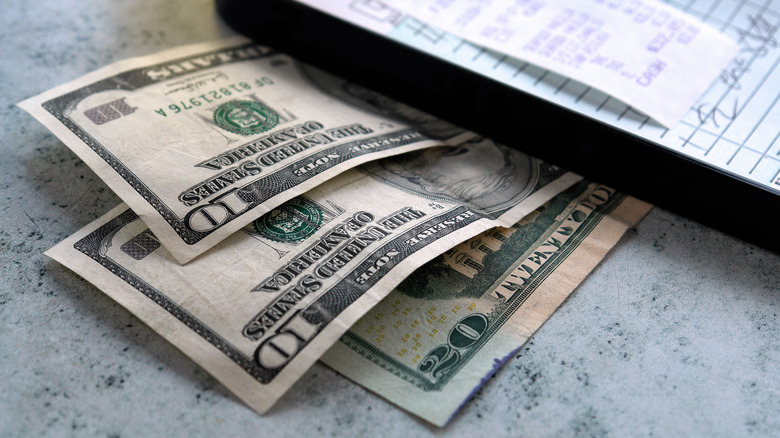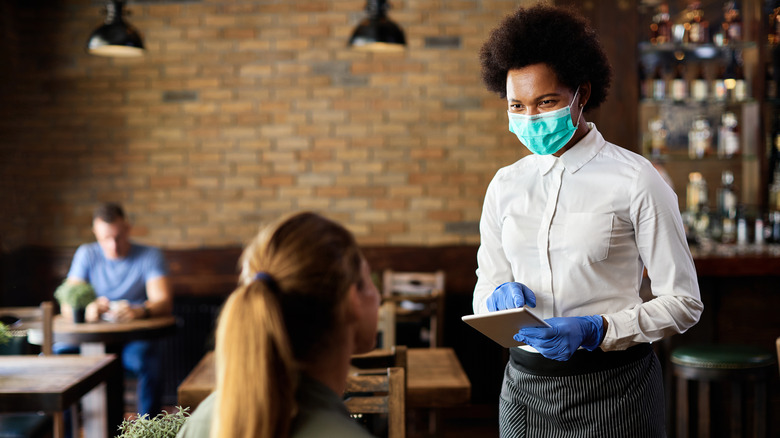New Report Shows Disturbing Tipping Inequalities In Restaurants
America's workplaces are filled with inequalities, and the restaurant industry is no exception. For example, WDSU News reported that in 2018 the Louisiana-Data Center found that white employees filled the majority of executive and manager roles at sit-down restaurants in New Orleans, even though the city has a larger Black population. This alarming divide inspired high-profile Black chefs like Mashama Bailey to advocate for more diversity in the culinary world. However, the disproportionate amount of people of color in restaurant leadership positions is not where the inequalities in the industry end. In fact, it all starts with the customer.
Throughout the United States, the cash wages of tipped employees can be as low as $2.13 per hour (via U.S. Department of Labor). So most people understand that properly tipping the employees waiting on their table can be the difference between their server's overall income matching or falling below their respective state's set minimum wage. But despite this, customers do not always leave a proper tip after clearing their plates. A recent survey just revealed one group of servers, in particular, are not being tipped as well as their peers (per One Fair Wage).
Black women are tipped far less than white male servers
An organization that aims to abolish service workers' "subminimum wages," One Fair Wage partnered with the University of California, Berkeley's Food Labor Research Center to conduct a survey that unveiled the "Intentional Inequality" report regarding the race and gender gap in the restaurant industry. The poll's findings were released on Black Women's Equal Pay Day on September 21.
The survey revealed the alarming amount of tips Black women servers received in comparison to their white male co-workers. According to the poll, 53% of Black women were unable to achieve the minimum wage through tips at one point during a month. In contrast, only 38% of white men surveyors had the same problem. And while 22% of Black women stated that they had trouble reaching minimum wage every day, only 10% of white men encountered the issue as frequently.
While there is no straightforward way to combat these tipping inequalities, One Fair Wage reported that it felt the first step to a more equitable restaurant industry is to petition Congress (via the One Fair Wage website) to raise servers' salaries to a $15 minimum wage. Although the future of the tipping wage is unknown, given that California recently passed a fast food bill that aims to protect workers' rights, it seems the service industry is definitely becoming more of a hot-button issue in the U.S.'s state and Federal governments.

